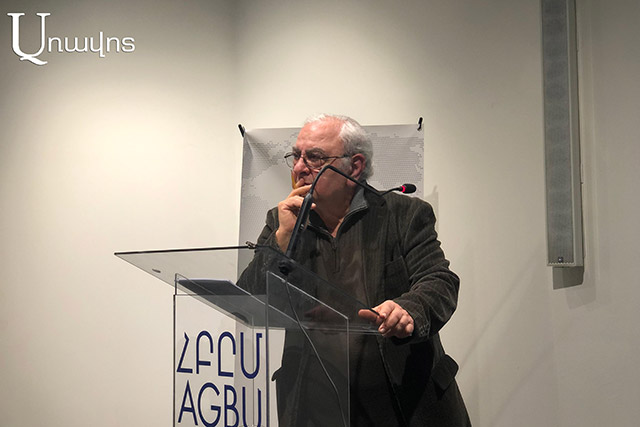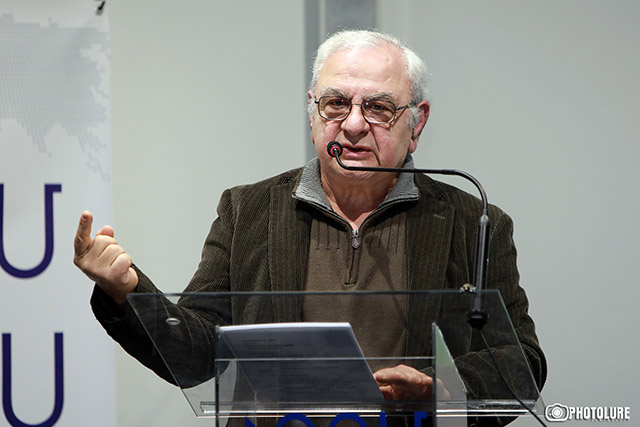“We went to war. For 25 years, these authorities, with the support of the parties, decided to bet on war, but not peace. We went, we lost. This is it,” historian and diplomat Zhirayr Liparityan expressed in response to the question of if he sees realistic grounds for building an era of peace during the lecture following the presentation of the book, “Armenia-Turkey: Statehood, History, Politics.”
During the first years of independence, Jirayr Liparityan was the chief negotiator of the Republic of Armenia with Turkey. The volume also substantiates the policy of normalization of relations with Turkey. The approaches to Armenia-Turkey relations are presented from historical, political, and psychological perspectives. At the end of the book, there are materials on the political processes that preceded and immediately followed the 44-day Artsakh war.
According to Zhirayr Liparityan, the era of peace with Turkey will start when we resolve several issues with Turkey. He explained, “The issue with Turkey is our relationship with present-day Azerbaijan. Turkey did not present it as a precondition, but for them that corridor, Nakhichevan, may be the relationship between Armenia and Azerbaijan in general, after which it will be possible to talk and recognize. There is also the Karabakh issue, there is the status issue. This issue has two sides. One is where independence is, Karabakh is part of Armenia, Azerbaijan, China, Russia, the other is whether it has autonomy defined by territorial integrity or not.”
Read also
Speaking about the November 9 statement, he said, “We signed that document to stop the war. This is the result. This has nothing to do with patriotism! When people said patriotism, they would notice the maximum demands. Not giving an inch of land with maximum expectations is why they were working with fantasy scenarios of what Russia will do or what the US will do. They were not realistic, but they considered it patriotic to want everything. By that logic, we went to war, we lost that war, we signed a paper.” In the current situation, Jirayr Liparityan sees two ways out.
During his lecture following the book presentation, he explained, “We have to accept the reality, and based on that, we can try to get out from under that document with the least damage, but we have to respect it. Here, justice has nothing to do with anything else. It is that we put force on the military and lost. It is difficult to accept this, we lost in a way that I do not think we will be able to recover from in the coming years, to recover in such a way that we take Shushi and Hadrut. I can not imagine. I had a conversation with the leaders of Armenia and Artsakh to tell me how they imagine that step. The idea is that if there are theoretically several points at the same time, the problem will be solved. I do not see the seventh of those six varieties all happening together at the same time, or all of us loving each other. We have been told for thirty years that Karabakh will not have independence. Azerbaijan says, Russia says, Iran says, Turkey says, the OSCE, the UN, Europe, the United States say. We put all that aside with a different logic and lost. And now we must first use the parts of that November 9 statement where there is uncertainty, we must try to use it to the maximum, to come out with the least amount of damage.”
The book “Armenia-Turkey: Statehood, History, Politics” was published by the Antares publishing house. It is still the first volume of a large-scale work. The other volumes of the series will be published in the next two years. The volume includes the historian’s articles, interviews, and analyzes presented for the first time in Armenian, and a large number of unpublished materials. The book presents a new study of the causes of the Genocide, which shows the political side of the Young Turks’ decision to eradicate the Armenians. The book contains articles exposing the reasons and nature of Genocide denial.
Tatev HARUTYUNYAN





























































